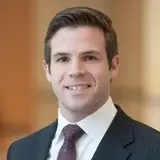Ujima Fund Investor Report Interview: Jamie Mangiameli
- Boston Ujima Project
- Oct 1, 2022
- 4 min read

October 1st, 2022 -- New Roots AME Church describes itself as a diverse community committed to living like Jesus by engaging in consistent spiritual practice, building deep community, working for justice and living into liberation.
Jamie Mangiameli, Executive Pastor at New Roots AME Church, is originally from the Chicagoland area, but moved to Boston in 2017. Jamie is passionate about embracing worship with a creative and collaborative posture. As a queer woman in ministry, Jamie is committed to the full inclusion of LGBTQ+ persons in the church and beyond. Paige Curtis spoke with Mangiameli about their journey to intentional investment.
Paige Curtis: Tell us about New Roots AME and how it got started.
Jamie Mangiameli: Our tagline at New Roots AME Church is “rethinking what church can be.” New Roots was started in 2018, by Reverend Mariama White-Hammond and a small group of folks who saw a need for spiritual connection and community. Noting the history of harm done by particularly the Christian church as an institution, these folks really thought through the harms that they experienced, and how we might respond by offering a truly diverse space, coming together to ask hard questions, authentic relationships, and a community that is willing to listen to where spirit is stirring.
New Roots has always looked to the natural world as a model and teacher for communication with the divine. In some ways that manifested through the structure of our service, which isn’t the kind of service you can just sit back and watch. It's participatory with a lot of opportunities for engagement and reflection. Because of the pandemic, we offered virtual service which allowed people to join from communities outside of Boston, with moments for small group breakouts that allowed folks to get to know one another. We realize that as a church our function is to facilitate space for people to connect, incubate ideas, and discern what spirit is doing all together.
Why did New Roots AME decide to invest in the Ujima Fund?
One of the emerging visions of New Roots is jubilee-seeking and justice oriented. So the biblical concept of jubilee has been a really important concept for our community. Part of the concept of jubilee is redistribution of funds and valuing rest, which comes up in the Hebrew Bible. But you can also look at the person Jesus was as somebody who practiced radical economics and did a lot of questioning around how those practices have been lost or overlooked.
We ask ourselves what it means for us, as a church rooted in Dorchester, to carry on this legacy of who Jesus was. We realized that extractive capitalism is really antithetical to what the church is called to do. Once our community heard more about Ujima and its focus on local ecosystems, it really got us thinking about how we as individuals have agency in structural change by the choices we make every day.
Everything that we do is a spiritual practice that speaks to our belief system, and that includes where we put our money, time, and energy. Investing in the Ujima Fund and its ecosystem gave us the opportunity to integrate spiritual practice and discipline into what we do with our funds, where folks purchase from, and support local businesses.
Has the pandemic revealed any changes for New Roots, in terms of how you all define or approach investment?
During the pandemic, we realized the importance of local commitments and relationship building as a spiritual community. What’s so beautiful about the Boston Ujima Project is the accessibility of investments, and the fact that you don't have to be a millionaire to invest. How you use your money and the purchases you make also tie back to investment. We talk a lot more about how our services can be discussion-based, what our values are, and how they're practically aligned or not.
What does being a faith-based anchor institution mean to you?
Well, I understand anchor institutions as cultural centers in one way or another, where people are gathering and figuring out how to do life beyond an individual level. So, our decision to invest in the Ujima Fund was a communal process of people who had very different identities and people who have very different lived experiences. It involved people who have different levels of connection to Boston, people of different ages, races, ethnicities, sexual orientation, and gender identity, who came together and agreed that this was an important decision. There were many members of New Roots who were part of the process of making the decision about investing as an institution that then chose to become voting members, solidarity members, or invest on their own. Being a faith-based institution has allowed us to have many points of connection with Ujima, beyond our investment.
What are you most looking forward to when it comes to the future?
New Roots is always asking how we can ignite radical imagination to really live in Jubilee, which involves building authentic relationships, and cultivating trust with people who are very different from yourself. So we’re really looking forward to more opportunities for that to happen. There’s also a real focus on supporting creative endeavors that maybe aren't seated in the church, but are fueled and nourished by the community. We’re also still trying to figure out how to be a community that is rooted in Boston but also is holding communities beyond Boston. So we have some people in Philadelphia, New Hampshire, and Los Angeles that are thinking about what it means to reimagine church in those specific areas. So there are so many things unfolding, from New Roots that aren't being held or guided by any type of central power, which is very different from traditional hierarchical church structure, which is really beautiful. ●
Learn more about New Roots AME Church here.

.png)


